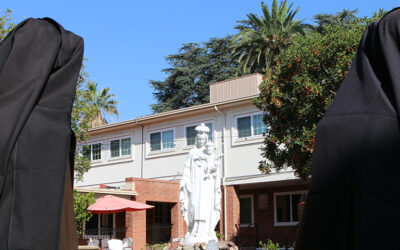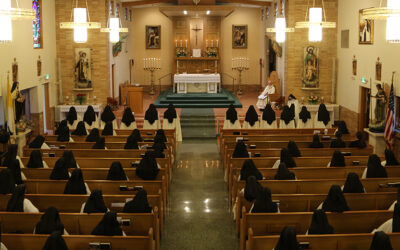By Marta Timar
There are many Catholic teachings shrouded in misunderstanding, and it wouldn’t be far-fetched to say that indulgences rank fairly close to the top of that list. Understanding what indulgences are and what they are not can help clear up the confusion.
Indulgences deal with punishment after sins have been forgiven, and are thus closely associated with the Sacrament of Penance. In order to understand the concept of indulgences, we must first remember that the effects of sin are guilt and punishment – eternal punishment and temporal punishment. According to the Catechism of the Catholic Church:
“Grave sin deprives us of communion with God and therefore makes us incapable of eternal life, the privation of which is called the “eternal punishment” of sin. On the other hand every sin, even venial, entails an unhealthy attachment to creatures, which must be purified either here on earth or after death in the state called Purgatory. This purification frees one from what is called the “temporal punishment” of sin.” (CCC 1472)
We must also remember that while God is certainly merciful, He is also just. Forgiveness of sin is one thing, punishment of sin is another. In the sight of God, we incur temporal punishment for our sins which we must undergo either in this life or in Purgatory in order to satisfy Divine justice. This is where an indulgence comes in, as it releases the penitent sinner from temporal punishment.
The Catechism explains,
“An indulgence is a remission before God of the temporal punishment due to sins whose guilt has already been forgiven, which the faithful Christian who is duly disposed gains under certain prescribed conditions through the action of the Church which, as the minister of redemption, dispenses and applies with authority the treasury of the satisfactions of Christ and the saints.” (CCC 1471)
Indulgences are either plenary – which removes all the temporal punishment due for sins; or partial – which removes part of the temporal punishment due for sins.
While the faithful can obtain an indulgence through the merits of Jesus Christ and the saints, we must put forth some effort in gaining an indulgence.In this, the Church encourages us to works of devotion, penance and charity as means in doing so. Also, certain dispositions are required in order to gain an indulgence, namely that the one receiving the indulgence be free of mortal sin, and Confession and Communion are also usually required.
Indulgences may be applied toward oneself (the living). We may also offer any indulgences we obtain on behalf of the Holy Souls. Some indulgences may only be applied in behalf of the souls of the departed. Still other indulgences can only be obtained on certain days or within certain periods of time. The best resource on indulgences is the Enchiridion of Indulgences, the Church’s official handbook on what specific acts and prayers carry indulgences and what the indulgences actually are.




